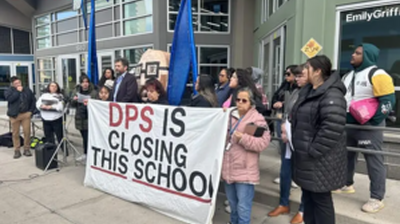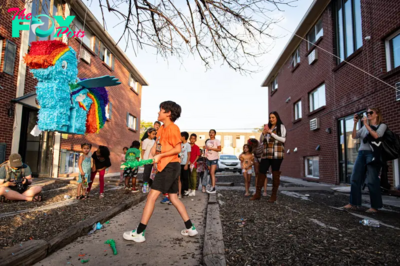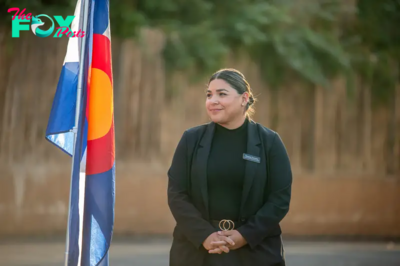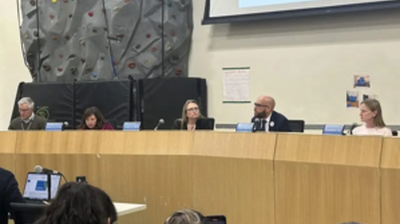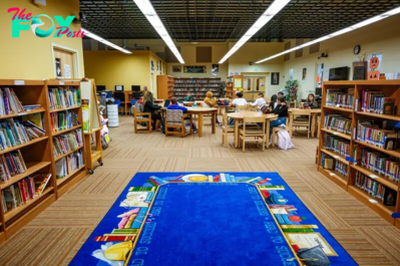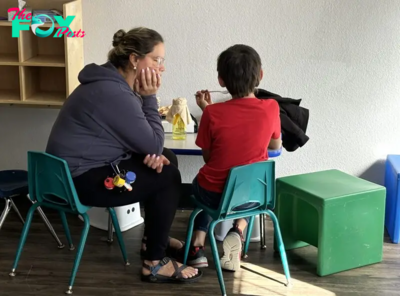Education
A group helps Colorado teens write laws. Now it’s looking for its next crop of students.
A few months after Olivia Christiansen cried what she calls “triumphant tears” while watching a bill she’d drafted clear the final hurdle before becoming law, her tears returned.
Triumphant, once again.
In that moment she had learned that a friend of a friend was on her way to college, thanks to Christiansen’s legislation-turned-law that gave Colorado students in the foster care system the opportunity to pursue higher education with full costs covered by the state and colleges and universities and additional support, including mentoring.
“Anybody who doesn’t have access to higher education has been failed by our systems because higher education is a human right,” Christiansen, 18, told The Colorado Sun. “And so I was thinking that a really good way to (help) people improve their lives and make sure that they have what they are entitled to is by funding higher education.”
The Poudre High School graduate set that consequential change in motion in 2022 through the Colorado Youth Advisory Council, the legislature’s longtime nonpartisan organization that opens the Capitol up to teens across the state. The student members are idea-makers and policy shakers who urge lawmakers to listen to their generation by crafting and presenting their own legislative proposals.
The organization, also referred to as COYAC, is recruiting students ages 14 to 19 to fill many open seats across Colorado and take a lead role in turning lawmakers’ attention toward the defining issues of their daily lives and futures starting in the next legislative session. COYAC has positions available for students in 24 state senate districts (find your district here) and is also looking for students to step into one Southern Ute Indian Tribe seat, one Ute Mountain Ute Tribe seat and one at-large seat with a priority for rural participants.
Applications are due by Wednesday night.
Through COYAC, students meet individually with the lawmakers from their districts, conduct “college-level research” on policy issues of their choice and dig into “some super nerdy policy terminology,” Sarah Moss, director of the organization, said.
“They have a perspective that doesn’t often get heard at the Capitol,” Moss said. “And while we often see youth testify on one-off bills, this program allows students to really be part of a yearlong legislative process and sometimes multiyear and live the highs and the lows of a policy proposal that may or may not make it through the process.”
Students this year pitched four bills for lawmakers. One that passed requires school boards create written policies barring discrimination on the basis of gender expression, including the use of a student’s preferred name.
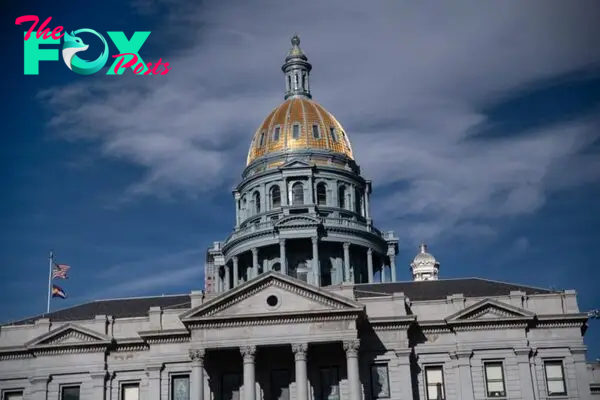
Last year, four student proposals advanced through both the House and the Senate to become law, with teens inspiring the development of a disordered eating prevention program in the Colorado Department of Public Health and Environment and the launch of a state task force charged with exploring school discipline policies and studying disproportionate rates of discipline among some groups of students.
The youth organization is now 16 years old, and while members from its younger years have long since grown, some of the issues they brought to the attention of lawmakers haven’t: teen suicide, mental health struggles and the need for better job opportunities.
“From the very start, they didn’t pick low-hanging fruit,” said former Republican State Sen. Ellen Stuart Roberts, who carried the bill that formed the organization in 2008. “That’s why some of these issues are still on the table. They picked things that are top of mind for students today.”
“On the right side of history”
Stuart Roberts, a mother of two teens at the time she sponsored the legislation, said she saw a pressing need to bridge two disparate generations.
“It had been a long time since (many legislators) had been in high school,” she said. “There was a lot of discussion about education, but there wasn’t that many avenues for young people to step into that space and express their opinions.”
So Stuart Roberts carved out that space herself, providing a place where students like Christiansen can give their generation a louder voice in the chambers.
“Youth have always been on the right side of history,” Christiansen said. “Youth are our visionaries. They have so much wisdom and expertise, and it would be such a waste to not listen to that expertise. The more we listen to young people, the better the world gets.”
☀️ READ MORE
Where Republican candidates in Colorado’s 3rd Congressional District stand on big issues
Eldora Mountain Resort withdraws objections to ski patroller union vote
Gun-related injuries cost at least $8.4 million in medical bills in Colorado in 2022
Christiansen, who pushed for state support for higher education for teens coming from foster care, was part of COYAC her junior and senior years of high school, stepping up as co-chair of the organization her senior year. After a childhood spent writing letters to lawmakers — including one sent to former President Barack Obama advocating for the end of the death penalty — Christiansen found a more direct way to communicate with lawmakers through the legislative organization.
She collaborated with former State Sen. Rachel Zenzinger, an Arvada Democrat who sponsored the bill and brought her own motivation to help the state’s foster youth.
-

 Education2d ago
Education2d agoWhat would it mean if President-elect Trump dismantled the US Department of Education?
-

 Education5d ago
Education5d agoPhiladelphia students have a new reading and writing curriculum − a literacy expert explains what’s changing
-

 Education5d ago
Education5d agoWhy school police officers may not be the most effective way to prevent violence
-

 Education1w ago
Education1w agoCampus diversity is becoming difficult to measure as students keep their race and ethnicity hidden on college applications
-

 Education1w ago
Education1w agoFederal judge rules that Louisiana shalt not require public schools to post the Ten Commandments
-
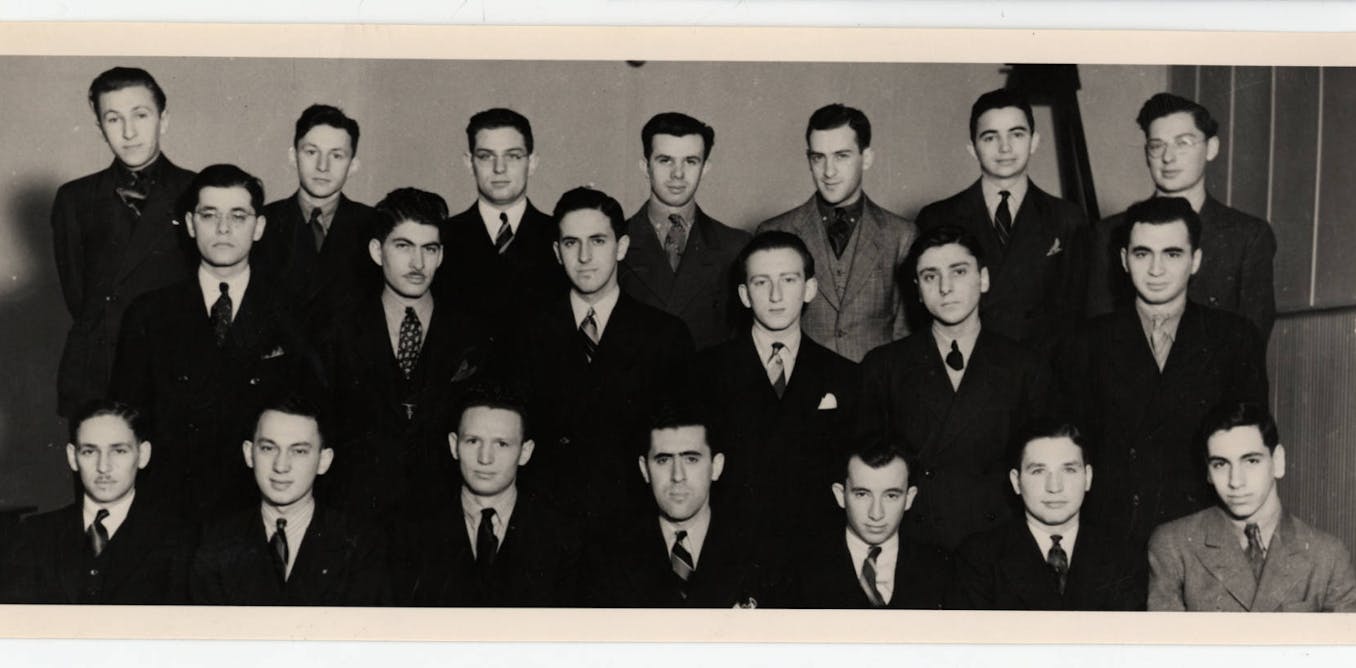
 Education1w ago
Education1w agoCampuses are ground zero in debates about antisemitism − but that’s been true for 100 years
-

 Education1w ago
Education1w agoSocioeconomic status explains most of the racial and ethnic achievement gaps in elementary school
-

 Education1w ago
Education1w agoMothers, metaphors and dyslexia: What language reveals about the challenges of a child’s learning disability
